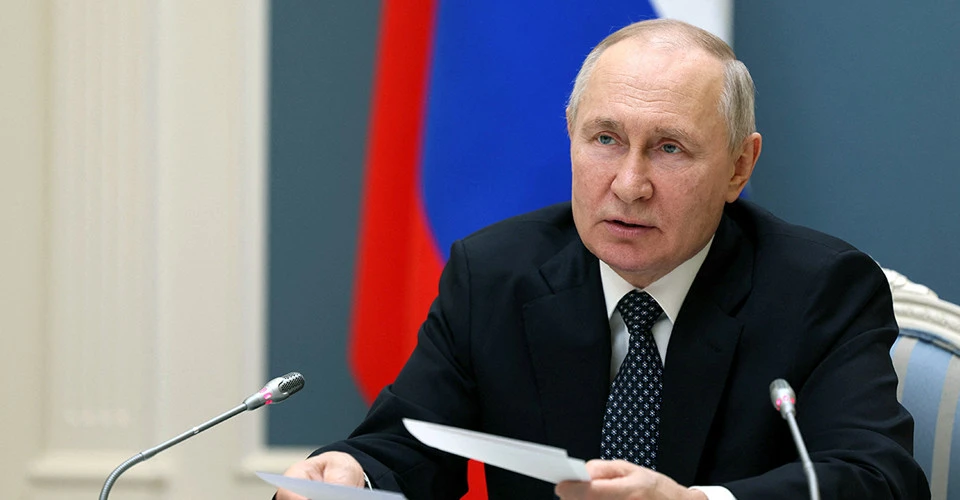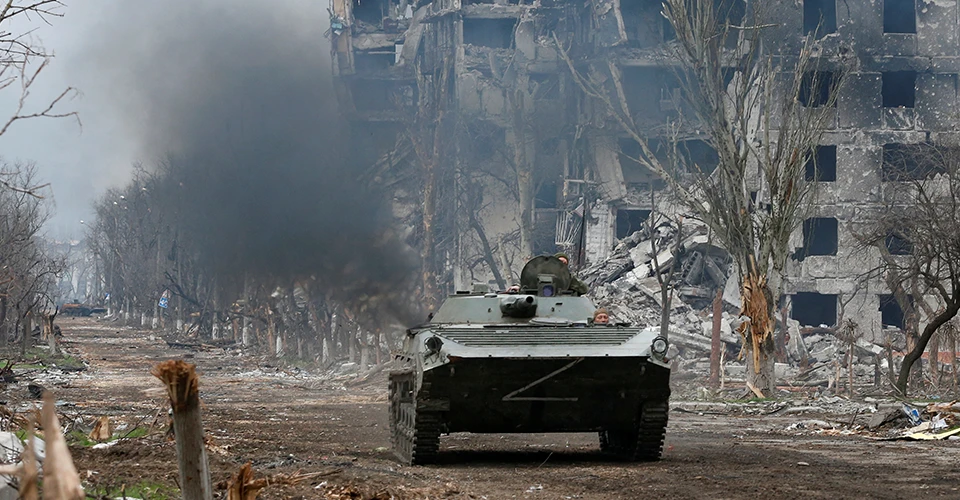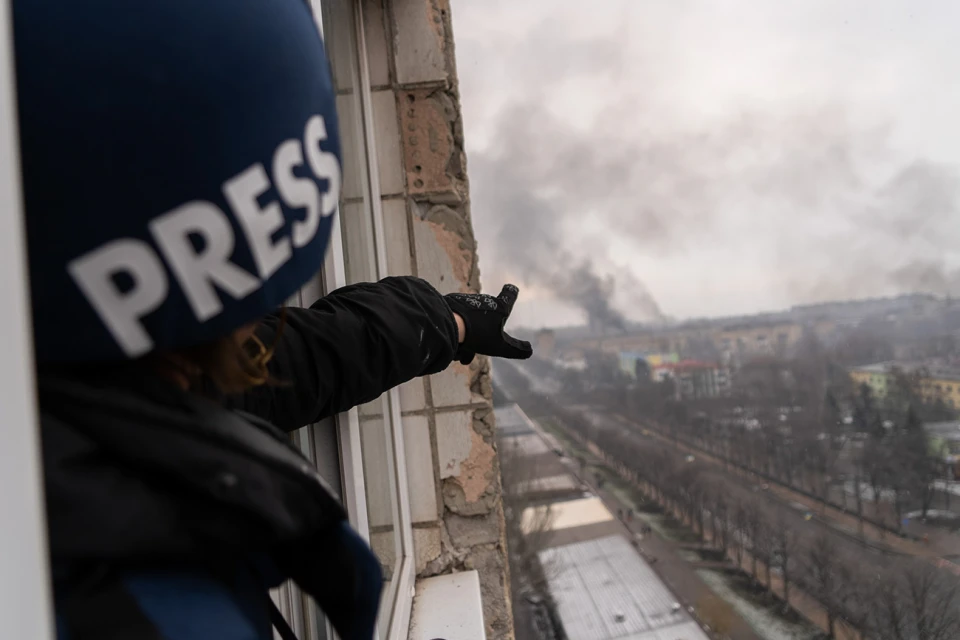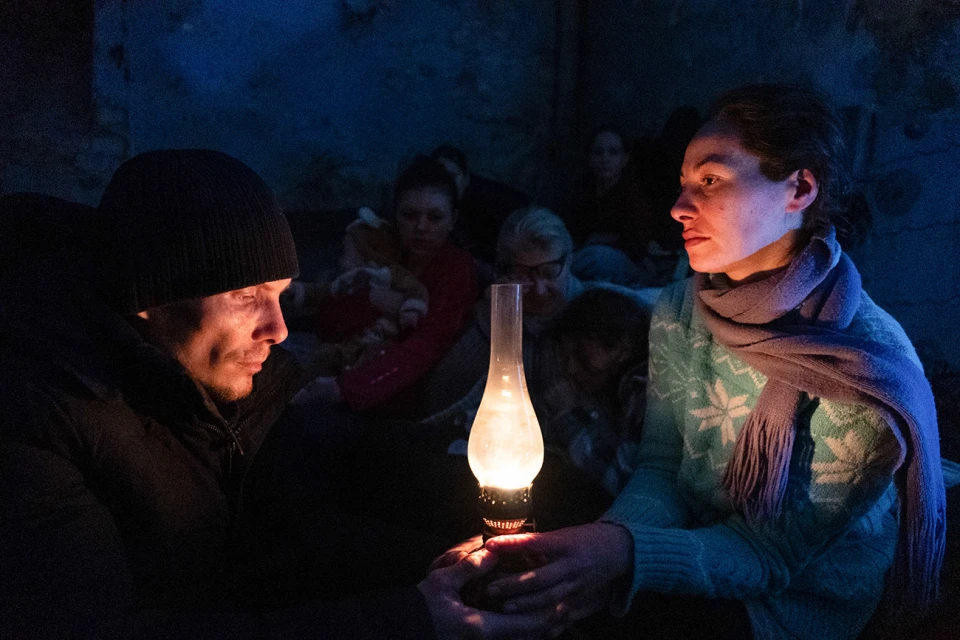
Occupied Mariupol on film: Ukrainian Oscar-nominated documentary VS Russian propaganda
On February 8, 2024, Russia announced the release of a propaganda film about Mariupol titled "20/22," portraying the alleged "liberation" of the city. As Russia attempts to convey misleading narratives about the ongoing war through "art," the Ukrainian documentary "20 Days in Mariupol" stands in stark contrast, having earned an Oscar nomination for Best Documentary Feature
Russian cinema has a historical tradition of serving as a tool for propaganda, dating back to the Soviet era. Under Putin's regime, this trend persists with films that manipulate historical narratives and present Ukraine in a distorted light. Espreso explores how the tragedy of Russian-occupied Mariupol is being portrayed in cinema in both countries currently at war.
Key points of the article:
- Russia's cinematic propaganda: Shaping a distorted reality
- Russians plan to screen a propaganda film shot in occupied Mariupol
- Ukrainian documentaries about the tragedy of Mariupol
- "20 Days in Mariupol": An Oscar-nominated documentary & why it deserves attention
Russia's cinematic propaganda explained: Shaping a distorted reality

photo: reuters
The legacy of Soviet cinema, tightly controlled by the state, created a constructed reality for viewers. This trend continues in modern Russia, where cinema is used to promote state-approved narratives. Putin's influence is evident in the directive to showcase films about the war against Ukraine, framing it as a fight against "neo-Nazi ideology."
In 2023, Russian President Putin allocated 11 billion rubles for films promoting colonial politics, criticizing “the Anglo-Saxon world's degradation, countering modern manifestations of Nazism and fascism, and highlighting the heroism of Russian soldiers in the special military operation.”
Despite international criticism and bans, Russia persists in producing propagandistic content, caricaturing Ukrainians as "Banderites" and fostering dehumanizing stereotypes.
In a detailed article for Detector Media, analyst Orest Slyvenko explores how contemporary Russian films not only distort historical events but also indulge in "toxic nostalgia," perpetuating the myth of the benevolent Soviet Union. This cinematic manipulation aims to mentally merge Russians and Ukrainians, pushing a narrative of unity.
For instance, a recent film, "Svidetel" ("The Witness") funded by the Russian Ministry of Culture and with involvement from the Ministry of Defense, mirrors Russian war crimes onto Ukrainians. It depicts Ukrainian military personnel as merciless "Nazis" engaging in atrocities. This tactic of mirroring, and projecting Russian actions onto Ukrainians, is a common propaganda strategy.
Despite the international focus of films like "Svidetel," they often lack artistic merit, serving more as tools of political appeasement than genuine contributions to cinema. This mediocrity, coupled with oversimplified narratives, highlights the manipulative nature of Russia's cinematic propaganda.
In essence, Russian cinema remains a powerful tool for shaping perceptions, reinforcing state-approved narratives, and promoting a distorted reality, especially concerning the war with Ukraine.
Russians announce screening of a propaganda film shot in occupied Mariupol

photo: reuters
Since 2014, Russia has produced numerous films on the Ukraine war, a conflict they've distorted to align with their narrative. Titles like "Opolchenochka," "Solntsepek," and "Donbass. Outskirts" have been part of this effort. Now, they have filmed a propaganda piece focused on the recently occupied city of Mariupol, using the demolished city itself as a backdrop, with plans for a near-future screening.
In April 2023, Mariupol's adviser to the mayor, Petro Andryushchenko, reported to Suspilne that Russians commenced filming a propaganda movie about the city's battles. The film, titled "20/22," directed by Russian Andrey Simonov, depicts the start of a special military operation and Mariupol's alleged “liberation” and “peaceful life” under Russian control, denoting a large-scale propaganda effort.
Andryushchenko noted that the filming included real military equipment and personnel.
On February 8, 2024, Russians announced the release of a propaganda film about Mariupol on Defender of the Fatherland Day (traditionally celebrated on February 23). Mariupol City Council revealed that the movie justifies Russian war crimes, overlooking their blockade, and distorting the reality of their occupation.
Mariupol Mayor, Vadym Boychenko, expressed concern over Russia's use of cultural tools for propaganda.
"They employ cultural tools for this purpose. There were attempts to organize an exhibition in Italy, which we successfully halted. Now, they've produced an overtly propagandist film labeling the blockade and destruction of Mariupol as 'liberation.' It's crucial to prevent these shows beyond Russia's borders and persist in conveying the truth about Russian war crimes globally. This is our ongoing battle in the realm of information warfare," emphasized Boychenko.
Revealing the reality: Five documentaries that uncover Mariupol's tragedy

photo: AP
The Ukrainian fiction film about Mariupol titled "Yuryk," released in 2023, sparked a backlash in Ukrainian society for distorting reality.
Ukrainian actress Irma Vitovska urged fellow actors to avoid such projects, emphasizing the need for trusted filmmakers. She stated, "Mariupol, Bucha, Izyum...we will open a lot more hell, don't risk your own name... There are documentaries for such topics."
So, here are 5 documentaries presenting firsthand accounts and footage from the Mariupol siege:
Mariupolis 2: Directed by the late Mantas Kvedaravičius, who was killed by Russians in Mariupol, this film captures life in a Baptist prayer house amid shelling, portraying the residents' struggles and resilience.
Mariupol. Unlost Hope: Based on the diaries of journalist Nadia Sukhorukova, five survivors share their experiences during the first month of the invasion, presenting a raw and fearlessly honest narrative without gruesome imagery.
Our House is on Fire: Mykola Lazarev's documentary, shot on a phone, chronicles his family's survival in Mariupol, showcasing the harsh realities they faced, including missile attacks, searching for water, and cooking on a balcony.
Mariupol: Get out of Hell: Created by the BBC Ukraine team, this documentary features the stories of Mariupol residents who escaped, detailing weeks and months spent in the besieged city.
Mariupol. Chronicles of Hell: This documentary provides personal testimonies and survival stories from Mariupol residents enduring the siege, offering a comprehensive view of life without basic necessities.
"Film it so the whole world can see it": A closer look at the Oscar-nominated documentary "20 Days in Mariupol"

photo: AP
The Oscar-nominated documentary "20 Days in Mariupol" has been making waves at international film festivals, clinching awards and accolades, including the prestigious audience prize at Sundance. With two BAFTA nominations and a Pulitzer Prize for its creators' work during the Mariupol siege, the film is not just a record-breaking success in Ukraine but a contender for the 2024 Oscars.
One poignant moment captured by Associated Press Ukrainian journalists during the chaos was a surgeon's plea: "Film it so the whole world can see it." This plea became the heart of the documentary "20 Days in Mariupol."
Journalists Mstyslav Chernov, Yevhen Maloletka, and producer Vasylisa Stepanenko, the team from the Associated Press, arrived in Mariupol an hour before the Russian invasion, capturing unprecedented footage of the city under siege. Despite the risks, they documented the humanitarian crisis, war crimes, and the resilience of Mariupol's residents.
Chernov emphasizes the importance of their work: "Without footage of destroyed buildings and dying children, Russian troops could do whatever they wanted. If it weren't for us, there wouldn't be such footage. That's why we took the risk to show the world what we saw."
For journalist Mstyslav Chernov, "20 Days in Mariupol" became a profound experience. Having worked in numerous conflict zones, he described Mariupol as "the absolute scariest and most difficult moment" in his career. The film captures the evolving tragedy, showing the initial belief that civilians wouldn't be targeted and the subsequent harsh reality.
Unlike some fiction films attempting to depict Russia's invasion, "20 Days in Mariupol" has garnered widespread praise for its accuracy. The people of Mariupol have expressed approval, distinguishing it from other productions like “Yuryk,” mentioned earlier, that faced criticism for historical inaccuracies.
The documentary achieved significant success in Ukraine, becoming the highest-grossing documentary in the country. Within the first weekend, it earned UAH 500,000, a figure that continued to grow. Now, "20 Days in Mariupol" is Ukraine's hopeful entry for the Best Documentary category at the 2024 Oscars.
As Ukraine has been striving for an Oscar since 1997, the nomination of "20 Days in Mariupol" marks a significant moment. The film stands as a powerful testament to the impact of war and the resilience of a community under siege. The journey for this Oscar has just begun.
"20 Days in Mariupol," as well as other Ukrainian documentaries about the city's occupation, serve as powerful tools to convey the truth about the tragic events in Mariupol, ensuring the world sees the unfiltered reality of the city's plight and a stark reminder of the human cost of war.
- News













































